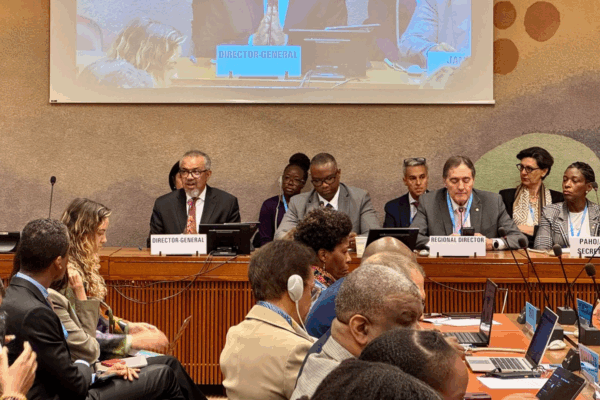The UN has endorsed a global goal to reduce premature deaths from non-communicable diseases (NCDs) by one-third by 2030. The declaration highlights air pollution as a major driver of NCDs and calls for action across highly-polluting sectors. This formal endorsement by the UN General Assembly follows the High-Level Meeting in New York in September.
NCDs, which are caused and exacerbated by air pollution, include the world’s biggest causes of death and drivers of healthcare costs, such as cardiovascular disease, stroke, lung disease, cancer and dementia. Evidence from the Lancet shows that poor air quality is the largest risk factor for premature death and disease globally.
Leaders’ declaration doesn’t go far enough on air quality
Leaders called for measures in sectors such as transport, waste, energy and industry to clean the air we breathe and protect health. But, given the huge health impact of dirty air, they failed to go far enough: the declaration is missing a target to reduce deaths from poor air quality.
The contrast in political priority between risk factors for NCDs is striking. The political declaration sets a laudable goal of 150 million fewer people using tobacco by 2030. But it fails to recognise that bad air quality is now a bigger driver of premature death and disease than tobacco, with around 8 million deaths per year attributed to air pollution.”
Nina Renshaw, Head of Health at Clean Air Fund
Leaders could have echoed the ambitious, yet achievable, target endorsed by Ministers of Health at the World Health Assembly in May 2025. That target requires governments to halve the health impacts and deaths related to human-made air pollution by 2040 (relative to 2015). That target would prevent 3-4 million deaths per year worldwide. A recent World Bank report confirmed that halving population exposure to harmful levels of particulate matter air pollution by 2040 is both feasible and affordable.
Overall, the language in the declaration on tackling air pollution is incredibly disappointing. Not enough is being done to curb the huge health burden. The declaration fails to mention fossil fuels, the leading cause of air pollution and climate change, which is like pledging to tackle smoking without mentioning tobacco.”
Jane Burston, CEO of Clean Air Fund


